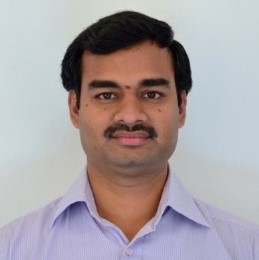Faculty Name: Dr. Chandrasekhar Murapaka
Course Period: 01st Jan to 26th Apr 2024 ()
Number of Credits: 3 credits
Course Contents:
Introduction to thin films: Definition of thin films - Formation of thin films (sticking coefficient, formation of thermodynamically stable cluster - nucleation) – Environment (Gas phase and plasma) for thin film deposition; Deposition parameters and their effects on film growth, Substrates – overview of various substrates utilized.
Vacuum technology: Concept of different vacuum pumps: rotary, diffusion, Turbo molecular pump, Cryogenic-pump, Ti-sublimation pump, Concept of different gauges: pirani, penning, Pressure Control – Mass flow controllers.
Physical vapor deposition (PVD) techniques: Evaporation- Thermal evaporation, Electron beam evaporation; Laser ablation; Ion beam evaporation and Cathodic arc deposition, Molecular Beam Epitaxy. Glow discharge Sputtering- DC and RF Sputtering; Magnetron sputtering; Reactive sputtering
Chemical vapor deposition techniques: Advantages and disadvantages of Chemical vapor deposition (CVD) techniques over PVD techniques, Different kinds of CVD techniques: Metallorganic (MO) CVD, Photoassisted CVD, Thermally activated CVD, Plasma enhanced CVD, Low pressure (LP) CVD, Atomic layer deposition (ALD)-Importance of ALD technique.
Epitaxy – Introduction: Epitaxial growth- Growth kinetics of epitaxy, Growth modes – illustration of crystallographic relations with thin film to substrate, characterization of epilayers, Utilization of various methods to grow epilayers (PVD and CVD)
Thickness Determination techniques: Thickness determination methods in thin film (insitu and exsitu) – Non Destructive Techniques - quartz crystal monitoring technique, optical interferometry, profilometric techniques. Destructive Techniques – depth profiling and cross-sectional electron microscopy
Characterization of Thin films: Structural characterization of thin films GIXRD- Compositional characterization – surface sensitive photoemission techniques (UPS,XPS).
What you'll learn: The student will learn the following aspects of thin film technology
- Fundamental Physics behind the thin film growth
- Technological aspects of various types of thin film growth and their importance specifically in semiconductor industries
- The instruments and their design for various types of PVD and CVD techniques
- Choice of a particular method to be employed specific to the application
- Characterization techniques specific to thin films
About the Instructor: Chandrasekhar Murapaka is currently working as Associate Professor in the Department of Materials science and Metallurgical Engineering at IIT Hyderabad. He has obtained his Masters of Technology degree from IIT Delhi and Doctoral degree from Nanyang Technological University (NTU) Singapore. Chandrasekhar’s research interests are focused on Spintronic materials for memory and logic devices. Prior to joining IIT Hyderabad, he has spent two years at Spintec, CEA Grenoble, France as a Research Engineer under Enhanced Eurotalents fellowship. He has also worked as senior engineer at Globalfoundries Singapore as a thin film process engineer. He has received gold medal for best PhD thesis in Physics 2015 from Materials Research Society Singapore. Till date, he has published 65 articles in peer reviewed journals and has 3 granted US patents and 1 Indian patent and 4 more filed under pipeline. He has also contributed 3 book chapters

Instructor Profile
Basic understanding of Materials science